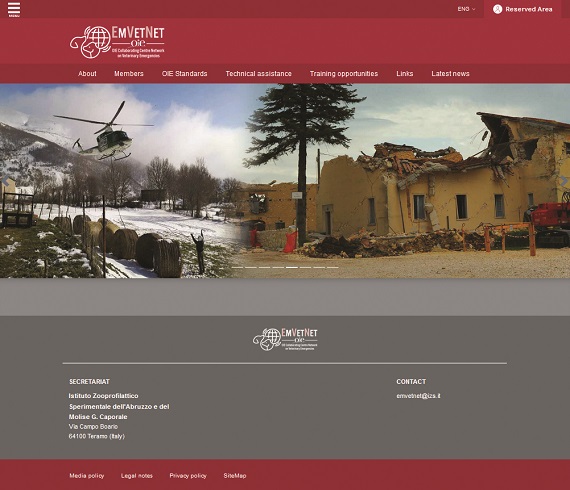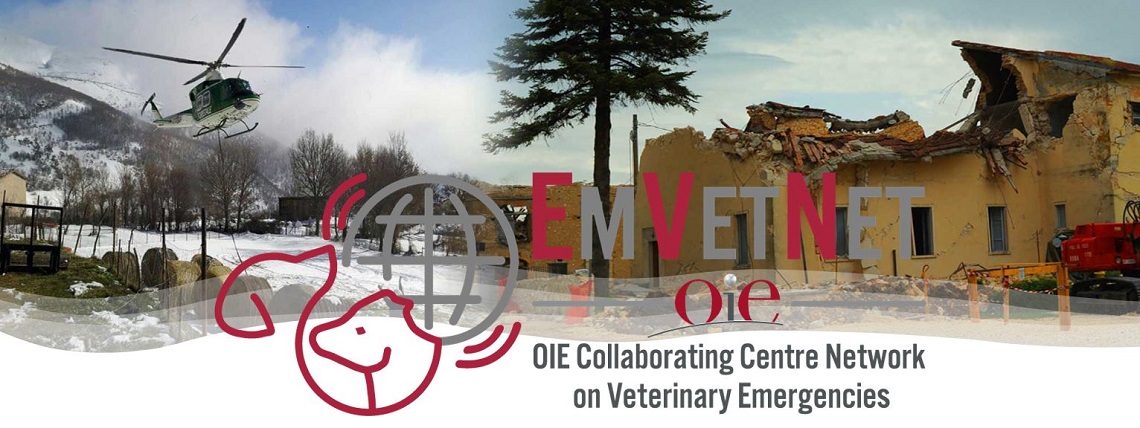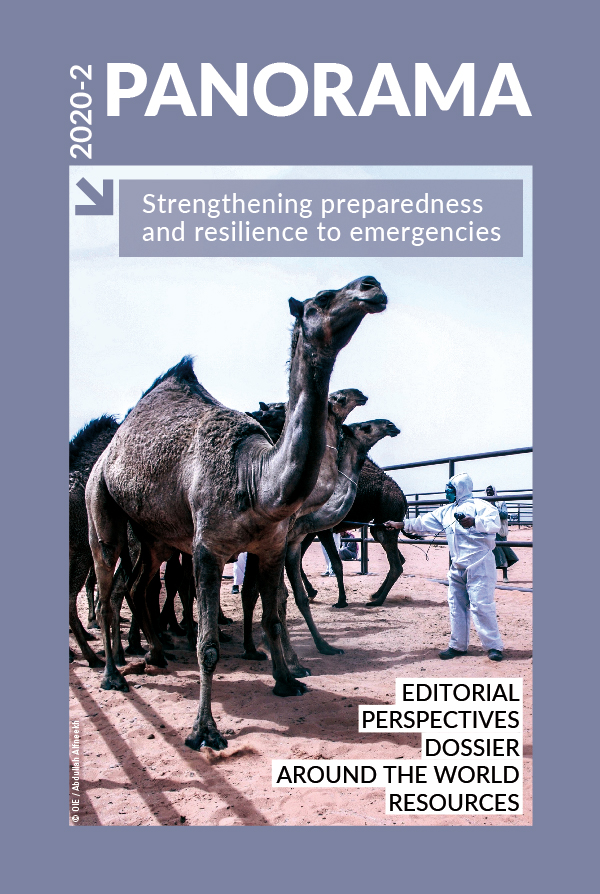Around the world Posted on 2021-03-19 10:59:34
Network initiatives
The OIE Collaborating Centre Network on Veterinary Emergencies (EmVetNet)
Keywords
Authors
P. Dalla Villa (1)*, H. Simmons (2) & P. Alfonso (3)
(1) Istituto Zooprofilattico Sperimentale dell’Abruzzo e del Molise ‘Giuseppe Caporale’ (IZSAM), Teramo, Italy; OIE Collaborating Centre for Animal Welfare.
(2) Institute for Infectious Animal Diseases (IIAD), College Station, Texas, United States of America; OIE Collaborating Centre for Biological Threat Reduction.
(3) Centro Nacional de Sanidad Agropecuaria (CENSA), San José de las Lajas, Provincia Mayabeque, Cuba; OIE Collaborating Centre for the Reduction of the Risk of Disasters in Animal Health.
* Corresponding author: emvetnet@izs.it.
The designations and denominations employed and the presentation of the material in this article do not imply the expression of any opinion whatsoever on the part of the OIE concerning the legal status of any country, territory, city or area or of its authorities, or concerning the delimitation of its frontiers and boundaries.
The views expressed in this article are solely the responsibility of the author(s). The mention of specific companies or products of manufacturers, whether or not these have been patented, does not imply that these have been endorsed or recommended by the OIE in preference to others of a similar nature that are not mentioned.
To better address the continuing challenges posed by a growing number of large- and small-scale disasters, the World Organisation for Animal Health (OIE) Collaborating Centre Network on Veterinary Emergencies (EmVetNet) was established in 2018, comprising the Istituto Zooprofilattico Sperimentale dell’Abruzzo e del Molise ‘G.Caporale’ (IZSAM) in Italy, focused on veterinary training, epidemiology, food safety, and animal welfare; the Centro Nacional de Sanidad Agropecuaria (CENSA) in Cuba, focused on the reduction of the risk of disasters in animal health; and the Institute for Infectious Animal Diseases (IIAD) at Texas A&M University in the United States, focused on biological threat reduction.

Together, the EmVetNet members have decades of experience managing biological threats, responding to natural and human-made disasters and assisting OIE Members to promote a culture of prevention and preparedness among their Veterinary Services and relevant stakeholders. EmVetNet’s mandate is to ensure that the health and welfare of livestock, wildlife and companion animals are protected during emergencies and to provide veterinary public health assistance [1].
The worldwide EmVetNet network aims to:
- provide technical advice and support for training, exercises and evaluation throughout the emergency management cycle for all hazards, and to facilitate multidisciplinary approaches to emergency management
- share knowledge on best practice (including models and case studies, e.g. model legislation, contingency/emergency plans, communication)
- make recommendations on research needs to support veterinary emergency management
- identify and coordinate with stakeholders (OIE Members, non-governmental organisations, public health authorities, the private sector), and seek to extend and diversify the network
- support operational activities, e.g. those of the OIE, Tripartite (WHO, OIE, FAO), Global Outbreak Alert and Response Network (GOARN) and Emergency Management Centre for Animal Health (EMC−AH).
| For more information, please visit the EmvetNet website |
http://dx.doi.org/10.20506/bull.2020.2.3160
References
- De Briyne N., Dalla Villa P., Ellis D., Golab G., Gruszynski K., Hammond-Seaman A., Moody S., Noga Z., Pawloski E., Ramos M., Simmons H., Tickel J. & Vroegindewey G. (2020). – Overcoming the impact of COVID-19 on animal welfare: COVID-19 Thematic Platform on Animal Welfare. Bull. OIE News, October 2020. https://doi.org/10.20506/bull.2020.NF.3137.












